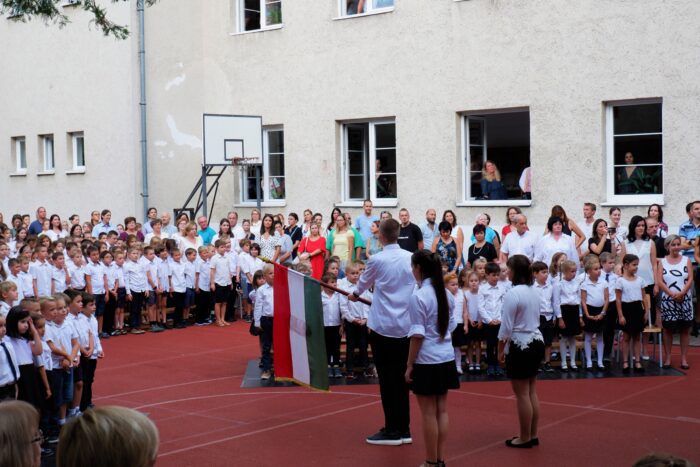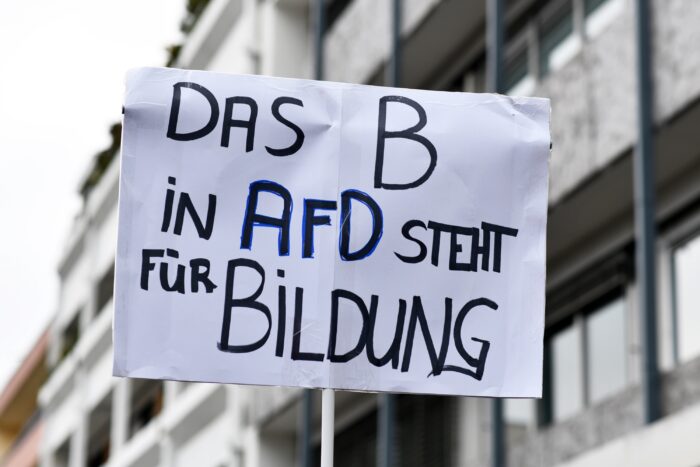Find all related Progressive Post
Progressive Post

We are living in a moment of great changes in the personal life of many citizens, as well as in the political life of our societies in Europe. The digital revolution is transforming communication and political debate alike. The decarbonisation of all our activities will be an extraordinary challenge for the industry as for every person and their behaviour. More than ever people are looking for a future that is promising a good quality of life in an open society and a healthy environment.
Progressive Parties must use this opportunity to deliver concepts and proposals for democracy, prosperity and fairness in our countries. As we know, many of the problems cannot be solved only on a national level. A more democratic and social Europe must therefore be the ambition of our reflection and debates. The Conference on the Future of Europe should be used to discuss with as many citizens as possible the next steps of the European integration process.
The EU can be characterised as a Common Market and a Monetary union with related policies around these two core projects. The identification with this kind of EU is high in industrial and commercial sectors of our countries but still quite low with civil society and individual citizens. The original idea of a united Europe was more than a mere economic program. The vision was a political union based on fundamental values where people can live, study work and meet without discrimination due to their ethnic or religious roots.
A European Republic is the best expression for the aspirations and expectations of millions of people throughout the decades of European integration since the early 50s of the last century. In a republic, the citizens are sovereign and political power derives from different levels of citizens participation. The realisation of a full-fledged European democracy must be one of the priorities for progressive parties in the EU. History proves that social justice, inclusive society, and high standards of living are best achieved in well-functioning democratic countries.
From my own experience in the European Parliament, I can tell how this Citizens Chamber in the EU has been helpful and instrumental for many high standards that we enjoy: consumer, environment, data or social protection, to name only a few key areas. The EP must therefore be strengthened. It should get all the necessary competencies to exercise its role as citizens representation. The EP still lacks the right of initiative, the right of inquiry (for all the scandals of tax evasion and fiscal fraud) and budgetary rights not only for spending but as well for the revenues of the EU.
A Political Union needs a democratic infrastructure to deliberate all issues of public concern and to synthesise opinions and interests for political decisions. The European political parties must therefore be empowered to exercise their role and functions in a parliamentary democracy. So far, they are more or less spectators, but not really actors in the campaigns for the European elections. This will hardly ever change unless European political parties can run on European lists and compete directly for mandates in the elections. The introduction of a European constituency is a ‘must’ for the next EP elections in 2024! The Spitzenkandidaten of every European party would then automatically be the person at the top of the lists. These personalities could be elected by all EU citizens. This increases the legitimacy for running as candidate to the presidency of the European Commission enormously.
Progressives should work for better information and participation of the citizens in European debates and decision making. Apart from the existing ‘Structured Dialogue of Civil Society’ with the Commission, the right of petition to the parliament and the European Citizens Initiative, we need more ideas and instruments to attract the interest for citizens to get involved. The digital revolution allows for new multilingual and transnational platforms for consultation, deliberation and recommendations. Citizens debates and assemblies will enrich a citizen-centred political agenda on EU-level. Social Partners, cities, youth councils and other civic coalitions should activate their potential for the further development of the EU.
Media, too, are of utmost importance for the democratic life. Misinformation, fake news and hate speech lead to polarisation and undermine a peaceful coexistence. A ‘European Media Pact’ and Action Plan are necessary to guarantee the well-functioning of democratic institutions.
How a ‘European Republic’ could function in a democratic way is important. What the EU must achieve on its way to a Political Union is the underlying challenge. In a World full of crisis, conflicts and geopolitical power games, the EU must be able to protect the values and interests of its people and therefore strive for sovereignty and autonomy in key areas. Among the tasks ahead for the EU are: accomplishing monetary sovereignty with the Euro, and insuring sovereignty of data – especially Big Data – sovereignty in tax matters (against tax avoidance, fraud and money laundering), but also internal as external sovereignty in security issues.
The European Republic should have a sustainable, social, and innovative profile: a model for a sustainable society (on that is carbon neutral, based on the model of a circular economy and active in protecting biodiversity). It should be an EU that is a Social Union with social rights, non-discrimination, just transition mechanisms, active in the fight against poverty and exclusion. And it should be a partner for fair trade, a community of values, defending democracy and human rights against authoritarian regimes and practices inside as outside its territory. And also: an active player for multilateralism, conflict resolutions and peace keeping but as well for organising the necessary security for its people.
The deliberations on the Conference for the Future of Europe must lead to the next major step ahead for a European Union, based on citizenship, democratic decision making and the capacity to deliver the common public goods to its people. Progressives should be at the forefront of this debate about Europe’s future.
Photo credits: Shutterstock
| Cookie | Duration | Description |
|---|---|---|
| cookielawinfo-checkbox-advertisement | 1 year | Set by the GDPR Cookie Consent plugin, this cookie is used to record the user consent for the cookies in the "Advertisement" category . |
| cookielawinfo-checkbox-analytics | 11 months | This cookie is set by GDPR Cookie Consent plugin. The cookie is used to store the user consent for the cookies in the category "Analytics". |
| cookielawinfo-checkbox-functional | 11 months | The cookie is set by GDPR cookie consent to record the user consent for the cookies in the category "Functional". |
| cookielawinfo-checkbox-necessary | 11 months | This cookie is set by GDPR Cookie Consent plugin. The cookies is used to store the user consent for the cookies in the category "Necessary". |
| cookielawinfo-checkbox-others | 11 months | This cookie is set by GDPR Cookie Consent plugin. The cookie is used to store the user consent for the cookies in the category "Other. |
| cookielawinfo-checkbox-performance | 11 months | This cookie is set by GDPR Cookie Consent plugin. The cookie is used to store the user consent for the cookies in the category "Performance". |
| csrftoken | past | This cookie is associated with Django web development platform for python. Used to help protect the website against Cross-Site Request Forgery attacks |
| JSESSIONID | session | The JSESSIONID cookie is used by New Relic to store a session identifier so that New Relic can monitor session counts for an application. |
| viewed_cookie_policy | 11 months | The cookie is set by the GDPR Cookie Consent plugin and is used to store whether or not user has consented to the use of cookies. It does not store any personal data. |
| Cookie | Duration | Description |
|---|---|---|
| __cf_bm | 30 minutes | This cookie, set by Cloudflare, is used to support Cloudflare Bot Management. |
| S | 1 hour | Used by Yahoo to provide ads, content or analytics. |
| sp_landing | 1 day | The sp_landing is set by Spotify to implement audio content from Spotify on the website and also registers information on user interaction related to the audio content. |
| sp_t | 1 year | The sp_t cookie is set by Spotify to implement audio content from Spotify on the website and also registers information on user interaction related to the audio content. |
| Cookie | Duration | Description |
|---|---|---|
| CONSENT | 2 years | YouTube sets this cookie via embedded youtube-videos and registers anonymous statistical data. |
| iutk | session | This cookie is used by Issuu analytic system to gather information regarding visitor activity on Issuu products. |
| s_vi | 2 years | An Adobe Analytics cookie that uses a unique visitor ID time/date stamp to identify a unique vistor to the website. |
| Cookie | Duration | Description |
|---|---|---|
| NID | 6 months | NID cookie, set by Google, is used for advertising purposes; to limit the number of times the user sees an ad, to mute unwanted ads, and to measure the effectiveness of ads. |
| VISITOR_INFO1_LIVE | 5 months 27 days | A cookie set by YouTube to measure bandwidth that determines whether the user gets the new or old player interface. |
| YSC | session | YSC cookie is set by Youtube and is used to track the views of embedded videos on Youtube pages. |
| yt-remote-connected-devices | never | YouTube sets this cookie to store the video preferences of the user using embedded YouTube video. |
| yt-remote-device-id | never | YouTube sets this cookie to store the video preferences of the user using embedded YouTube video. |
| yt.innertube::nextId | never | This cookie, set by YouTube, registers a unique ID to store data on what videos from YouTube the user has seen. |
| yt.innertube::requests | never | This cookie, set by YouTube, registers a unique ID to store data on what videos from YouTube the user has seen. |
| Cookie | Duration | Description |
|---|---|---|
| COMPASS | 1 hour | No description |
| ed3e2e5e5460c5b72cba896c22a5ff98 | session | No description available. |
| loglevel | never | No description available. |


